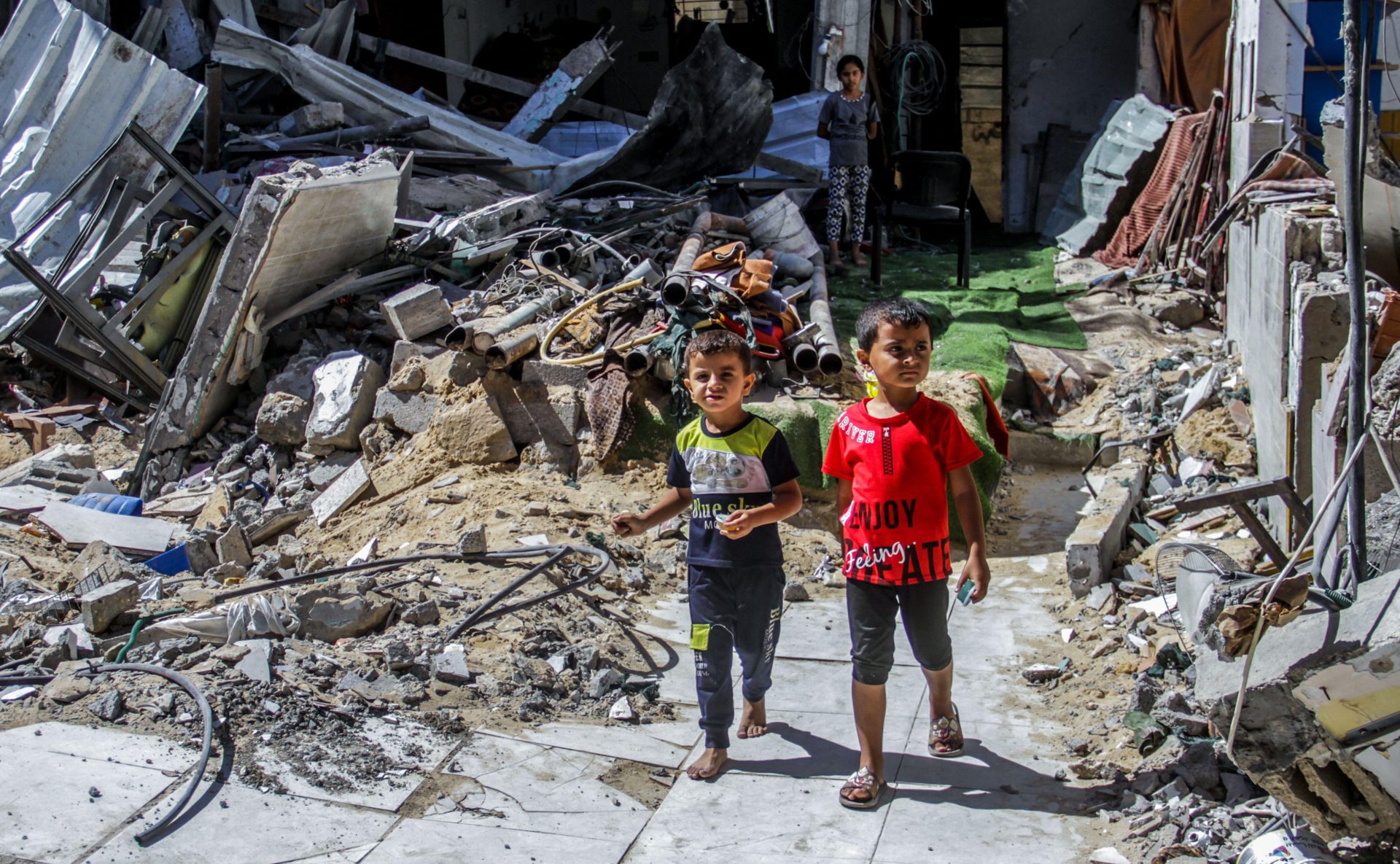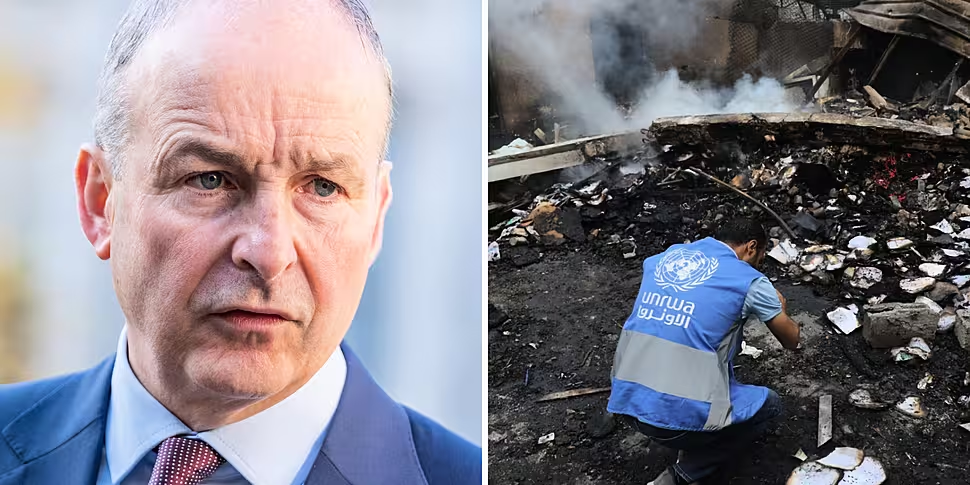Israel’s UNRWA ban marks the country’s “final weaponisation of hunger, starvation and deprivation of the basics of life” against the Palestinian people, the Tánaiste has told Newstalk Breakfast.
Micheál Martin said the move is part of Israel’s broader strategy to “undermine any possibility of a two-state solution” to the war in the Middle East.
Yesterday, Israel’s parliament banned UNWRA (the United Nations Relief and Works Agency for Palestine Refugees) from operating in Israel and the occupied territories.
The decision will severely restrict the aid organisation’s work in Gaza and the West Bank.
The move has been condemned by the UN – with Secretary-General Antonio Guterres warning that it “could have devastating consequences” for people in the Occupied Territory.
Separately, the Governments of Ireland, Norway, Slovenia and Spain have jointly condemned the Israeli decision.
On Newstalk Breakfast, Minister Martin said Israel is further weaponizing hunger, starvation and deprivation with the move.
“The real issue with UNRWA for Israel, it seems to me, is that UNRWA has kept the essentials of life going within Gaza and within the West Bank and indeed, in refugee camps in Jordan and elsewhere - in Lebanon - where Palestinians went after being displaced,” he said.
“They have the right to return and the politics behind it, of course, is to try and extinguish that right to return and undermine Palestinian self-determination and their right to a Palestinian state and the two-state solution.
“So, it's part of a broader strategy to undermine any possibility now of a two-state solution.
“But its most immediate impact is, I think it would be the final weaponisation of hunger, starvation and deprivation of the basics of life in terms of the collective public.”
I strongly condemn the Israeli parliament’s approval of a law banning UNRWA from working in the Occupied Palestinian Territory.
Such a move would be unacceptable and have grave consequences for Palestinians.
The international community must stand against this.
Joint statement: pic.twitter.com/jvulIaop9l
— Micheál Martin (@MichealMartinTD) October 28, 2024
He said he does not accept Israel’s insistence that it is committed to working with international partners to get humanitarian aid to the Palestinian people.
“I can't accept it anymore,” he said.
“I mean, I went to the Rafah border. I saw all of the essential lifesaving equipment - food and basic stuff that would have been important from a humanitarian perspective - left in Rafah and not allowed into Gaza.
“The only conclusion one could draw is that every excuse was being made to deny stuff going in as opposed to allowing stuff go in.
“The corridor and the trucks and trucks of medicine that were not allowed in, it's just unacceptable.”
Minister Martin said the last few weeks have seen fewer humanitarian aid trucks than ever getting into Gaza.
He labelled the Israeli decision “quite extraordinary and beyond comprehension” – warning that it will now be impossible for UNRWA to get the “basic essentials of life” to the men, women and children trapped in the Occupied Territories.
“[This] is an attack on Palestinians, it's an attack on the UN system and on the multilateral order as we know it,” he said.
“One has to ask the very simple question, where will this all end?”
 Palestinian children inspect damage to Al-Aliya Kindergarten after it was bombed by Israel in Jabalia camp north of Gaza, 14-9-24. Image: SOPA Images Limited / Alamy
Palestinian children inspect damage to Al-Aliya Kindergarten after it was bombed by Israel in Jabalia camp north of Gaza, 14-9-24. Image: SOPA Images Limited / AlamyThe Tánaiste said the international community must now stand up to Israel, and work to get the country to reverse its decision.
“It is contrary to the UN Charter, it's contrary to international humanitarian law and it represents a further chapter in the collective punishment of the Palestinian people, who are now in probably one of the worst humanitarian crisis experienced by any people for quite a long, long time,” he said.
Minister Martin also said Fianna Fáil remains committed to backing the Occupied Territories Bill – but said it needs significant amendment to make it constitutional and to protect it against legal challenge.
You can listen back here:










